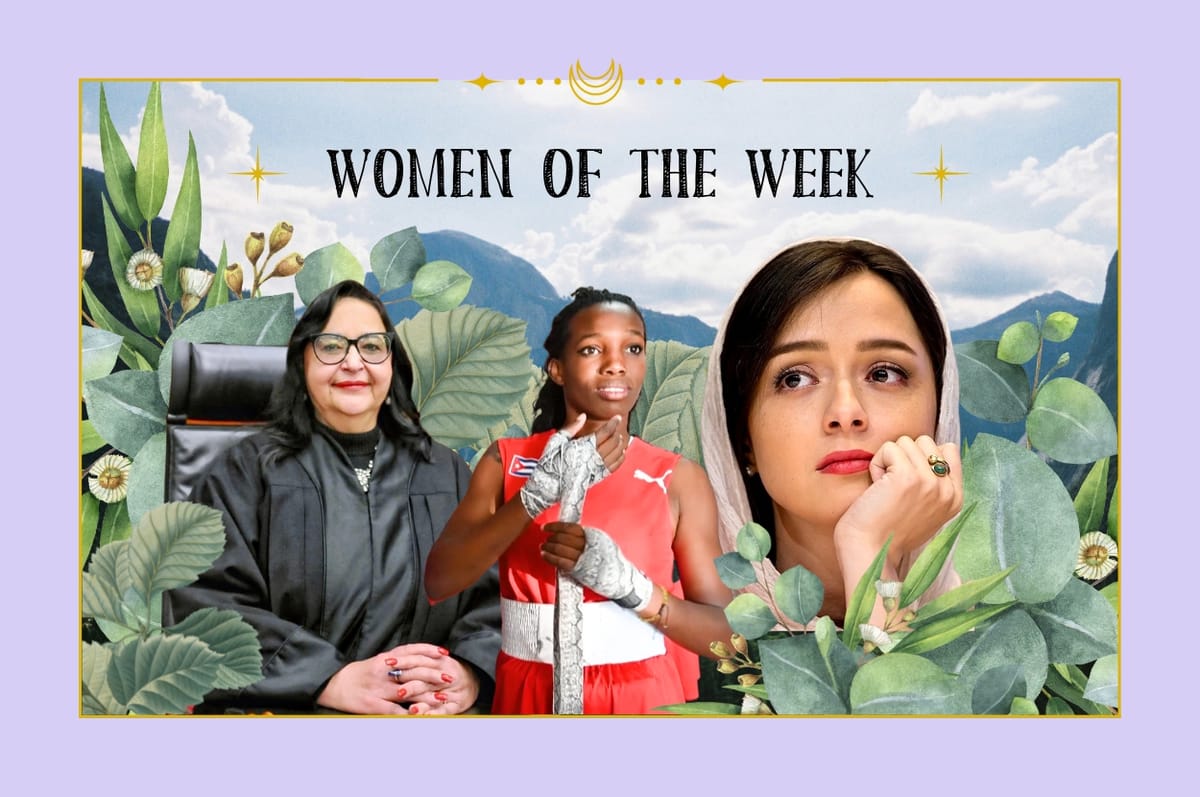Women Of The Week: Iranian Actress Taraneh Alidoosti, Mexican Chief Justice Norma Piña And Cuban Women Boxers
Here are some of the inspiring women you should know about this week.

Iran’s top actress speaking up in support of the Mahsa Amini protests, Mexico’s first woman chief justice and Cuban women boxers – here are some of the inspiring women you should know about this week.
1. Iranian Actress Taraneh Alidoosti
Taraneh Alidoosti, one of Iran’s most famous actresses, who was jailed for speaking up against the country’s execution of Mahsa Amini protesters, has been released.
The 38-year-old was released on bail on Wednesday Jan. 4.
Alidoosti is one of Iran’s most famous actresses, having appeared in the film “The Salesman”, which won the Oscar for Best International Film in 2016.
In November, she had shared a photo on Instagram in November of herself without a headscarf, holding a sign reading “Woman, Life, Freedom”, the slogan associated with the Mahsa Amini protests.
Alidoosti was arrested on Dec. 17 after she criticized authorities for executing Mohsen Shekari, the first known protester to be hanged.
2. Mexican Chief Justice Norma Piña
Norma Piña, an environmentalist lawyer and advocate for women’s and LGBTQ rights, was sworn in as the first woman chief justice of Mexico’s Supreme Court on Jan. 2.
Piña has been a justice at the Supreme Court since 2015 and has advocated for women’s reproductive rights and LGBTQ rights.
She has pushed for Mexico’s transition to renewable energy and defended the right to a healthy environment.
During her acceptance speech, she promised to create a more fair and equal society, without violence against women, according to Spanish news outlet El Pais.
3. Cuban Women Boxers
Women in Cuba are finally competing in boxing tournaments after Cuba lifted a 60-year-ban on women competing in the sport.
Since Fidel Castro’s revolution in 1959, women had not been allowed to participate in boxing competitions because the sport was considered “too dangerous”.
In fact, Fidel Castro’s wife, Vilma Espin, had believed women’s beauty would be tarnished by boxing.
Previously, women in Cuba were forced to move overseas if they wanted to become elite boxing athletes.
However, the ban was lifted after Cuba approved a new Family Code, which provided more rights to the LGBTQ community, women, children and the elderly.
The country will now hold an exhibition event to create a “national pre-team” to represent the country internationally.





